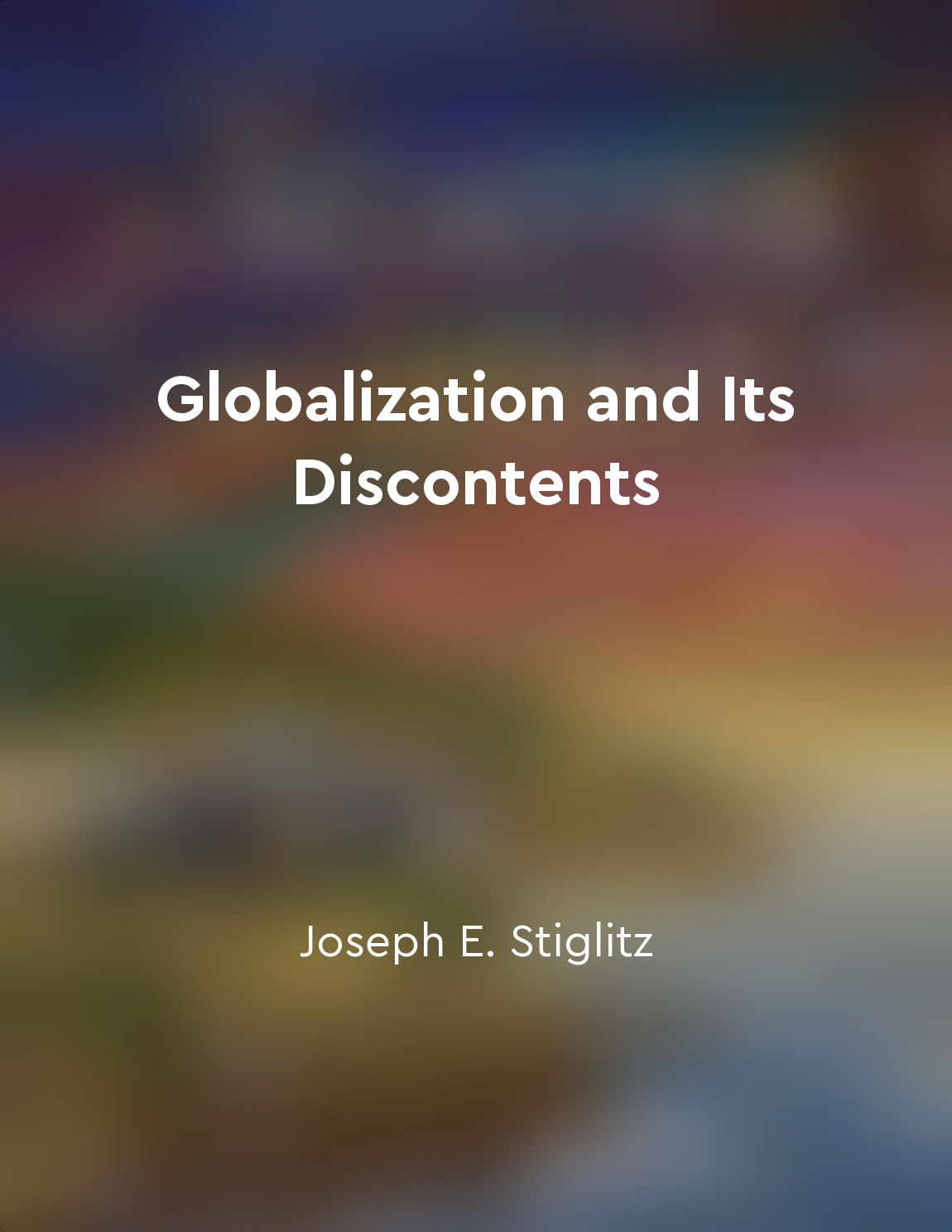The interests of developing countries must be taken into account in global decisionmaking from "summary" of Globalization and Its Discontents by Joseph E. Stiglitz
Global decision-making affects every corner of the globe, including developing countries. However, it is often the case that the voices and interests of these countries are not adequately considered in the process. This can have detrimental effects on the well-being and development of these nations, as decisions made at the global level can have far-reaching consequences on their economies, societies, and environments. When decisions are made without taking the interests of developing countries into account, it can lead to policies that benefit the more powerful and wealthy nations at the expense of those that are struggling to catch up. This can perpetuate inequality and exacerbate poverty, hindering the progress of these countries and making it even more difficult for them to achieve sustainable development. By ensuring that the interests of developing countries are considered in global decision-making processes, it is possible to create more equitable and inclusive policies that take into account the unique challenges and needs of these nations. This can help to level the playing field and create opportunities for growth and development that are beneficial for all parties involved. It is crucial for global decision-makers to recognize the importance of including developing countries in discussions and negotiations that affect their futures. By listening to their perspectives, understanding their concerns, and working together to find solutions that are mutually beneficial, it is possible to create a more just and sustainable global system that works for everyone, not just the few.- The interests of developing countries must be taken into account in global decision-making in order to promote a more fair, inclusive, and prosperous world for all. Failure to do so can lead to further marginalization and exploitation of the most vulnerable nations, perpetuating a cycle of inequality and injustice that hinders progress and development on a global scale.
Similar Posts
We must resist oppression
Oppression is not a rare or occasional phenomenon. It is not an aberration. It is not an exception to the rule of freedom and e...

Social safety nets are necessary to protect vulnerable populations in times of economic crisis
In times of economic crisis, vulnerable populations are the ones who suffer the most. They often do not have the resources or s...

The voices of marginalized communities must be heard in global debates
The idea that marginalized communities must have a seat at the table in global discussions is critical. Without their perspecti...

Necessity of redefining social mobility
In today's rapidly changing world, the traditional notion of social mobility is no longer sufficient to accurately capture the ...
Economic growth does not benefit everyone equally
One of the most common myths about capitalism is the belief that economic growth will benefit everyone equally. This assumption...
Power and wealth corrupt global systems
Throughout my experiences, I have witnessed firsthand how power and wealth have the ability to corrupt global systems. When ind...
Innovation and flexibility are crucial in a postpandemic world
In a post-pandemic world, the importance of innovation and flexibility cannot be overstated. The global landscape has been fore...

